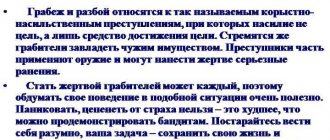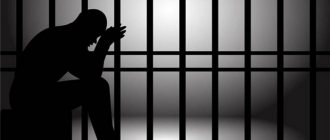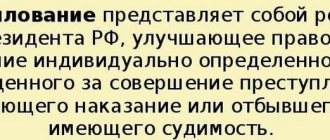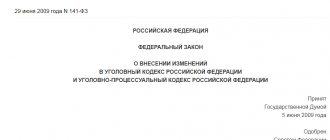The task of the police in the Russian Federation is to ensure law and order. These are phenomena of paramount importance that are necessary for the stability of the social and state system.
In this regard, in our country, police officers have fairly broad powers. In particular, among other things, they have the right to briefly restrict the freedom of citizens, if necessary, detaining them and placing them in temporary detention centers.
However, these actions must be justified, and they must be performed in strict accordance with current legislation. The peculiarities of the order and how long the police can detain will be discussed later in the article.
Concept
The fifteenth paragraph of the fifth article of the Criminal Procedure Code of the Russian Federation establishes that detention is the actual deprivation of freedom of movement of a citizen who is suspected of committing a criminal offense. It is carried out in strict accordance with the procedure defined by the Code. The period of detention is calculated from the moment the person is actually deprived of the opportunity to move freely.
This measure in relation to a potential criminal is a coercive measure. Its use is permitted by a certain circle of subjects (law enforcement agencies and other bodies). The maximum period of detention of a suspect is calculated in hours and cannot exceed forty-eight hours. If during this period the citizen’s guilt is not proven, he must be released.
Some legal scholars determine that the period of detention of a suspect is calculated from the moment he is brought to the interrogating officer or investigator. This measure is short-term in nature.
Reasons for the procedure
A person who is considered a suspect may be detained on the following grounds:
- the suspect was found at the scene of the crime;
- there is evidence that the person has committed a criminal offense;
- evidence was found on the citizen’s belongings or in the living quarters that indicate that this particular person committed a criminal offense.
In addition to the grounds, the reasons for detention are also important. These include:
- Attempts to escape made by a citizen under suspicion.
- The identity of the suspect or place of residence (registration) has not been established.
- The investigator received the prosecutor's permission to conduct this event.
If one of the above reasons is present, the period of detention is calculated on the same basis.
Reasons for detention
There is an opinion in society that police officers have every right to make a detention or arrest without any valid reason. Indeed, situations often arise when police officers exceed their official powers established by law. This is completely illegal and unacceptable.
However, current legislation strictly limits the list of grounds on which a person can be limited in his freedom. It is contained in Article 14 of the Federal Law “On Police”. These, first of all, include:
- determining the identity of a person suspected of entering objects subject to protection;
- suspicion of committing a criminal offense;
- capture of a wanted person;
- capture of persons evading serving administrative arrest;
- capture of persons who escaped from psychiatric hospitals and pose a threat to society due to the presence of a mental illness;
- attempt to hide from a police officer.
This list is not exhaustive. In addition, the police have the right to detain citizens who are heavily intoxicated with alcohol or drugs in the event of a threat to public order.
In general, there are quite a few reasons for detention, but each case must have a legal justification. If a citizen was limited in his rights without good reason, this is a gross violation of the law , and police officers guilty of exceeding their powers may be held accountable for their actions.
Evidence of the legality of the procedure
A longer period of detention of a person is calculated from the moment the investigative authorities establish the fact of his involvement in the commission of a criminal offense. In addition, investigators must immediately obtain permission to carry out this procedural action.
Measures to restrict freedom are applied in the following cases:
- the accused reported that the criminal offense he committed was carried out in complicity;
- eyewitnesses of the crime indicate the involvement of a specific person;
- the investigative authorities established the real involvement of the detainee in the commission of a crime on the basis of evidence;
- The citizen fully matches the description given by the witnesses.
In these cases, the period of detention is also calculated from the moment the citizen is deprived of freedom of movement.
Types of detention
To establish from what moment the period of detention is calculated, it is necessary to know its types. Russian legislation establishes two types of detention: administrative and criminal.
The administrative type is used when it comes to depriving a person of freedom until the consideration of the case of an administrative offense committed by him. The period of administrative detention of a person is calculated from the moment of the actual application of restrictive measures regarding the movement of the guilty person and the drawing up of a protocol on detention. The duration and types of sentences, depending on the severity of the offense, are set out in the relevant Code.
The criminal type of detention is used in situations where a person is suspected of committing a criminal offense. The duration of such a measure, in contrast to the period of administrative detention of a person, is calculated in a short-term period (in hours), since it is a temporary restrictive measure.
The duration of the restriction of freedom depends on the type of detention and the reason for its implementation.
What is detention
Everyone knows that the Russian police, like in any other state, have the right to detain a criminal. At the same time, in order to avoid police brutality, restricting a citizen’s freedom is allowed only for a short time. Long-term restriction of freedom (up to 1 year, and in exceptional cases more) can only be determined by the court by its decision; this will already be called a preventive measure in the form of detention.
On the initiative of the police (without a court decision), a person can be placed in a cell for only two days.
The actions of a police officer to detain must strictly comply with the requirements of the law, otherwise we can talk about a violation of the constitutional rights of a citizen, which is unacceptable.
Each detention is under the control of the supervisory authority - the prosecutor's office; the police are obliged to immediately inform its leadership about the fact of restriction of freedom. In practice, there are many cases when people who have nothing to do with the crimes that the police allegedly suspected them of committing are detained without any reason. In such situations, it is necessary to resort to various methods of influencing the guilty officials, up to and including legal action. To do this, you need to know the fundamental rules, failure to comply with which will result in illegal police actions.
The essence of the administrative type procedure
Having considered the moment from which the period of administrative detention is calculated, it is necessary to determine the essence of this concept.
This type has many nuances, depending on the reason for imprisonment and the severity of the offense committed. The minimum period of administrative detention is three hours (if we are talking about a mild offense). The maximum duration of a compulsory measure is 48 hours.
There are a number of features regarding the length of detention. For example, if an offense committed by a citizen has signs of an encroachment on the Russian border, the grounds for depriving a person of freedom of movement change, but the period and procedure for calculating it remain the same.
Within the framework of administrative cases, there are features of how the period of detention is calculated, depending on the identity of the perpetrator. One such example is the delivery of a citizen to the police department in a state of intoxication (toxic, narcotic or alcoholic). In this case, the period of administrative detention is calculated from the moment the person becomes completely sober, when he can adequately perceive what is happening around him and his actions.
The administrative type of detention in some cases does not begin from the moment of the actual arrest of the citizen, although this is enshrined at the legislative level. Since one of the conditions for the start of the period is the drawing up of a protocol, in exceptional situations the arrest is made before the start of the detention period. This is due to the fact that it is not always possible to draw up a report at the place of arrest. In this case, the document is drawn up upon arrival at the police department, and the period of detention is calculated from the moment it is drawn up.
How long can they be kept in the precinct?
The main legal acts that regulate the procedure and time of detention are the Criminal Procedure Code of the Russian Federation (CPC RF), Federal Law “On Police” No. 3-FZ of 02/07. 2011, as well as the Code of Administrative Offenses of the Russian Federation (CAO RF).
Free legal consultation
+8 800 100-61-94
Detention itself should be understood as a measure of procedural coercion, consisting in a short-term restriction of a citizen’s freedom.
Attention! Only law enforcement officers can make arrests. Restriction of freedom by persons who are not authorized by law to perform this action is unlawful.
Since the procedural procedure under consideration involves a significant loss of citizens’ rights, the period for which the restriction of freedom can be applied is extremely important. It is established by the Constitution of the Russian Federation, as well as the above-mentioned normative documents, which should not contradict it.
Thus, Article 22 of the country’s Basic Law states that arrest and restriction of freedom are possible only on the basis of a court decision. Without judicial authorization, no one can be detained for more than 48 hours.
Thus, the maximum time of police detention cannot exceed two days. In exceptional cases, this period may be extended to 5 days. However, it should be borne in mind that the decision on such an extension is made exclusively in court.
Upon expiration of the period of detention, the following decisions may be made in relation to the detainee:
- release from custody;
- detention and redirection to a pre-trial detention center or special detention center of the Ministry of Internal Affairs;
- choosing a preventive measure not related to isolation from society.
The corresponding date and time when the detention was carried out are recorded in the protocol drawn up at the time of this procedural procedure.
Law enforcement actions
After an administrative detention has been made and the corresponding protocol has been drawn up, the period of 48 hours (in some cases less) begins to run.
Once the maximum arrest time has expired, the citizen must be charged or released. If during this period evidence of a person’s guilt was found, a preventive measure is taken against him.
Further detention in custody is not such a measure in this case. A citizen may be given a written undertaking not to leave the place or a measure in the form of arrest at home may be taken against him.
If a citizen has committed a crime of particular gravity, he may be left in the place of detention until a guilty verdict is announced. Moreover, such an arrest must be authorized by the court by issuing an appropriate resolution.
Cases of administrative arrests
After the violator has been detained, taken to the police department and a report has been drawn up, in certain cases an administrative arrest is imposed on the person. Such cases include the following:
- petty theft;
- non-compliant operation of a car or other type of transport;
- illegal sale of narcotic or drug-containing drugs and substances;
- production of narcotic or drug-containing drugs and substances without appropriate permission.
In each of these cases, the offender is subject to 48-hour administrative detention, followed by corresponding arrest for up to fifteen days. In any of these cases, the arrest must be accompanied by a written court sanction.
The procedure for detention and notification of third parties
Since the restrictive period begins to run from the moment the protocol is drawn up, the subject of its determination is the official carrying out the process of applying the restrictive measure. The same subject draws up a protocol, investigates the case or transfers it to the investigator and subsequently requests an extension of the period of detention or an arrest against the guilty person.
The period of detention does not include the period of transportation of the detainee to the police department. Regardless of whether the person was caught near the police station or on the other side of the city, the period begins to run from the moment the person is brought to the police station.
When drawing up a report, the police officer is required to indicate not only the exact time of detention and information about the suspect, but also the motives for the action and its features (for example, resisting arrest, whether the detainee had injuries not related to the arrest, etc.). The specifics of the arrest must be indicated due to the fact that the unlawful behavior of the arrested person affects the sanctions applied to him, and the presence of undocumented injuries can be attributed to the police officer.
After drawing up a report and placing the suspect in a cell, the police officer must take the following actions:
- Notify the investigation officer of the arrest before twelve hours have passed.
- Give the detained person the opportunity to notify his next of kin about his whereabouts. If the detainee is a minor, the police officer himself notifies relatives, guardians or other legal representatives.
- Notify other persons, bodies or organizations (for example, the command of a military unit, if the detainee is a military serviceman; the secretary of the relevant Russian chamber, if we are talking about a member of a public monitoring commission; the embassy (consulate), if the detainee is a citizen of a foreign state).
In some cases, notifying anyone about a detention is strictly prohibited. For example, if the investigation and all actions within the case must be kept secret. For such cases, the concealment of information must be authorized by the prosecutor.
Grounds for releasing a person
Early release of a detainee occurs in the following cases:
- there is no guilt of the suspect in committing the crime or connection with it;
- during the arrest, police officers violated the procedure for conducting this procedural action;
- there are no grounds for depriving a citizen of his freedom.
Timely release of a detainee occurs in the following cases:
- the court refused to extend the period of detention;
- the court ruled to deprive the citizen of his liberty.
If the investigation officer sent a petition to the court about the need to extend the period of detention for another day due to the impossibility of making a final decision, the court issues a corresponding document (or refuses to extend the time).
After the end of the period of restriction of freedom, the released citizen receives a certificate about the time and period of detention and the reason for it.
The performance of police duties is often associated with various risks. The use of physical force or even weapons may be required in a variety of situations - both to protect life or health, and, for example, to detain criminals, and therefore is the right of the police.
The list of cases when law enforcement officers have the right to use physical force, special means and firearms, as well as the procedure for their use, are clearly regulated by law.
A police officer has the right to use physical force only when non-forceful methods do not ensure the fulfillment of official duties, namely, if it is necessary to overcome opposition to the legal demands of a police officer (for example, when a police officer asks to clear part of the sidewalk for the passage of special vehicles), to stop an offense or crime, or to deliver offender to the office premises.
In addition, the employee has the right to use physical force in cases where the use of special means or firearms is permitted.
The police are armed with a large number of special equipment - from rubber sticks and gas canisters to water cannons and armored vehicles.
The list of situations in which a police officer can use special means:
- to repel an attack on a citizen or police officer;
- to suppress a crime or administrative offense;
- to suppress resistance to a police officer;
- to detain a person caught committing a crime and trying to escape;
- to detain a person if this person can offer armed resistance;
- for delivery to the police, escort and protection of detained persons, persons taken into custody, persons sentenced to imprisonment, persons subjected to administrative punishment in the form of administrative arrest, as well as for the purpose of stopping an escape attempt, if a person resists a police officer, causing harm to others or yourself;
- to release forcibly detained persons, seized buildings, premises, structures, vehicles and land plots;
- to suppress riots and other illegal actions that disrupt traffic, the operation of communications and organizations;
- to stop a vehicle whose driver has not complied with the police officer’s request to stop;
- to identify persons who commit or have committed crimes or administrative offenses;
- to protect protected objects, block the movement of groups of citizens committing illegal actions;
- in cases where a police officer is allowed to use firearms;
At the same time, a police officer is prohibited from using special means against women with visible signs of pregnancy, as well as persons with obvious signs of disability and minors, if they do not offer armed resistance and do not try to attack strangers or police in a group, or if such the attack threatens anyone's life or health. In some cases, the law provides for derogations from these restrictions.
Finally, the police also have the right to use firearms:
- to protect another person or oneself from an attack, if this attack involves violence dangerous to life or health;
- to suppress attempts to seize firearms, police vehicles, special and military equipment in service (support) of the police;
- to free hostages;
- to detain a person caught committing an act containing signs of a grave or especially grave crime against life, health or property, and trying to escape, if it is not possible to detain this person by other means;
- to detain a person offering armed resistance, as well as a person refusing to comply with a legal requirement to surrender weapons, ammunition, explosives, explosive devices, toxic or radioactive substances in his possession;
- to repel a group or armed attack on buildings, premises, structures and other objects of state and municipal bodies, public associations, organizations and citizens;
- to prevent the escape from places of detention of suspects and accused of committing crimes or the escape from convoy of persons detained on suspicion of committing a crime, persons against whom a preventive measure in the form of detention has been applied, persons sentenced to imprisonment, as well as to suppress attempts to forcefully release these persons.
- to stop a vehicle by damaging it, if the person driving it refuses to comply with the repeated demands of a police officer to stop and tries to escape, creating a threat to the life and health of citizens;
- to neutralize an animal that threatens the life and health of citizens and (or) a police officer;
- to destroy locking devices, elements and structures that prevent entry into residential and other premises;
- to fire a warning shot, sound an alarm, or call for help by firing a shot upward or in another safe direction.
The law prohibits the use of lethal weapons against women, persons with obvious signs of disability, and minors when their age is obvious or known to the police officer, except in cases where these persons offer armed resistance, commit an armed or group attack, which is threatened by someone else. either life or health.
It is also prohibited to use firearms in large crowds of citizens if this could result in injury to bystanders.
The law assumes that if a police officer does not have special equipment or weapons, then in a state of necessary defense, in case of emergency or when detaining a criminal, he has the right to use any improvised means or other weapons that are not in service with the Ministry of Internal Affairs.
Exceeding authority by a police officer when using physical force, special means or firearms entails liability established by law.
The procedure for using physical force, special means and firearms
Citizen's actions
In order to prevent violation of the terms of detention by police officers, the suspect must know his rights and the algorithm of possible actions. The detainee should remember the following:
- During the procedure, it is necessary to request documents from the police officer, as well as find out the reason for this procedural action. Every citizen has the right to know what he is accused of, and every official must document his authority.
- The suspect has the right to ask a police officer to notify his next of kin about the fact of detention and the place of detention.
- When detained, you must independently record the time of this procedural action.
- When signing the protocol, the suspect must carefully study all the information and data included in the document.
- The suspect must be released after the period of restriction of freedom has expired, unless specific charges are brought against him and there are no grounds for extending the period.
- Upon arrival at the police station, the detainee has the right to seek legal assistance from a lawyer. If the suspect cannot pay for the services of a third-party representative, a public defender is provided to him free of charge.
- When detained and in the police department, the suspect should not be rude to the police officers, use violence, and so on. Otherwise, certain sanctions will be applied to him.
The rights of a detainee include the following:
- know the reason for detention;
- use the services of a lawyer;
- give oral and written testimony in your native language, even if it is not Russian;
- use the services of a translator (if necessary);
- study the protocol, sign or write a disagreement;
- receive a photocopy of the protocol;
- If a suspect remains in the place of detention for more than three hours, he has the right to receive a place to rest and food.
Detention periods must be strictly observed by law enforcement agencies. The suspect, for his part, must monitor compliance with these deadlines and comply with the rules of conduct during detention.
Rights of the detainee
Every detainee has rights defined by law, which must be strictly observed. Thus, the Constitution of the Russian Federation establishes that citizens have the right to receive qualified free legal assistance.
In addition, constitutional norms guarantee that a person placed in custody has the right to use the services of a lawyer. Thus, at any time, a detained person has the right to communicate with a lawyer related to the circumstances of his case.
If the detainee does not speak Russian, then he must be provided with an interpreter . In addition, detainees have the right to a telephone call. For example, it is enshrined in Article 14 of the Federal Law “On Police”. Thus, detainees can notify their relatives or lawyer about the fact of detention. The exercise of this right is carried out within 3 hours after delivery.
When detained, detainees must be kept in premises where the conditions exclude a threat to the life and health of citizens. In addition, they are provided with food and medical care if necessary.







